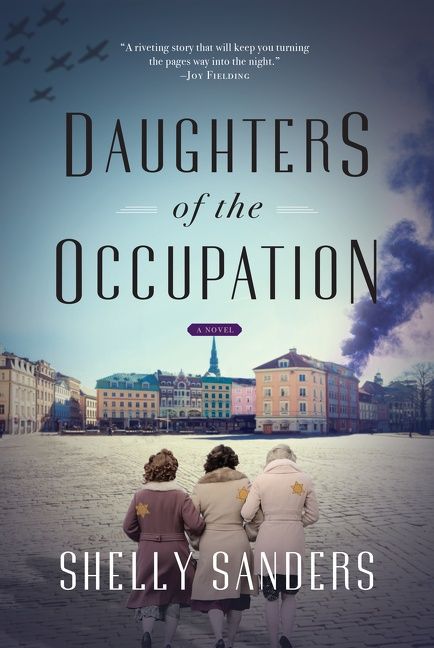This week we’re featuring some great books by Canadian authors in three different genres.
The Book of Grief and Hamburgers by Stuart Ross (ECW Press)
During the week of shiva we are meant to share memories of the person whom we are mourning. We laugh, we cry. We recall the good and the bad. We reflect on what we’ll miss about the person, and our regrets.
In many ways, acclaimed Canadian poet and writer Stuart Ross does this with his latest work. He reflects on those he has lost, especially during the pandemic, such as his brother Barry and his dear friend, Canadian poet Michael Dennis. He eulogizes them with a deep sense of love, while mourning the parts of himself that died with them, and contemplating life after loss.
Yet part of facing this loss is also welcoming the ‘hamburger’: something humorous to offset the grief. Thus, when something gets too serious, or the emotion too overwhelming, Ross’ words wander back to the hamburger. There is, to me, something quite Jewish about managing to find humour in the absurd, even in our moments of darkness.
This poetic essay of sorts, though a slim volume, is intimate and moving by equal measure. Written as Ross’ inner monologue, his poignant words resonate for those who have had to confront grief in isolation during the pandemic.
Aside from the elegance of Ross’ words, the book is also beautifully designed. The cover features a sketch by artist Angie Quick on a piece of lined paper. It is the perfect visual representation of the book’s contents: it’s as though we’re entering the author’s personal diary.
As is the case with most poetry, readers will find something unique that moves them. It is one of the most meaningful books I’ve read in a while, especially since it captures so well those horribly lonely early parts of the pandemic. I’m sure that when I return to this book—which I know I will—it will continue to yield insights upon each re-read.

Called to Testify by Judith Kalman (Sutherland House)
At the centre of Judith Kalman’s memoir are her experiences at the 2015 war crimes trial of Oskar Gröning, where she testified on behalf of the half-sister she never met, who was killed in the Holocaust. But Kalman’s writing extends beyond simple court testimony as she testifies to the story of her life through the framework of loss and trauma.
Kalman leads us through her childhood, and the experiences of her survivor parents, which gave rise to her complex relationship with Jewish community and identity.
She writes about her teenage years and adulthood as she faced mental health struggles, met her husband, lived the years of her first marriage (which posed its own unique set of challenges), became a mother, and found a way after the death of her husband.
At the book’s end, Kalman returns to the saga of her testimony at the Nazi war crimes trial, as though inviting herself (and readers) to examine it through the lens of all she has experienced in her life.
Gracefully written and emotionally evocative, Called to Testify in many ways goes beyond what one might expect of the memoir genre by virtue of Kalman’s beautiful prose. Above all, Kalman’s memoir is a moving reflection on the impact of trauma and how it shapes one’s identity.

Daughters of the Occupation by Shelly Sanders (HarperCollins)
Stories which provide insight into the experiences of the second or third generation—that is, the children and grandchildren of survivors, and survivors themselves—are an emerging sub-genre of Holocaust fiction. Such is the case in Shelly Sanders’ latest novel, which alternates between the perspectives of Miriam Talan in 1940s Latvia and her granddaughter Sarah Byrne three decades later in Chicago. The bookexamines the trauma of the Holocaust across three generations of women, and its impact on their relationships with one another.
In 1940, Miriam Talan and her family live a comfortable life, but their world is flipped upside down when the Soviets invade Latvia. Just one year later, the Nazis occupy Latvia in turn, further devastating the state of Jewish life, and Miriam’s husband is killed. In an effort to save her daughter Ilana and son Monya, Miriam entrusts her children to her housekeeper, asking that she conceal them as Christians until the end of the war.
Meanwhile, in the 1970s, Sarah’s mother Ilana has just passed away. At her mother’s funeral, Sarah reconnects with her estranged grandmother Miriam. Having been kept in the dark her whole life about her family’s past and desperate for answers, Sarah interrogates her grandmother, who remains tightlipped. Only amid a medical emergency does Miriam reveal some important information. Sarah then embarks on a dangerous trip to the Soviet Union in an attempt to find answers for her grandmother about an uncle whom she has only discovered and may possibly still be alive.
Daughters of the Occupation is a fascinating exploration of the legacy of the Holocaust and of Sovietism on the passage of Jewish identity.The book is haunting, thoroughly researched, and emotionally affecting. Sanders’ characters are imbued with real heart, and her depiction of their complicated relationships with one another are true to life. In fact, the book was inspired by the author’s own family history: Shelly Sanders only discovered her Jewish ancestry as an adult.







